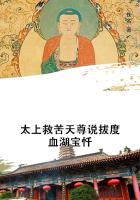Let me now quote the usual Roman definition of anInheritance. The reader will be in a position to appreciate thefull force of the separate terms. Haereditas est successio inuniversum jus quod defunctus habuit ("an inheritance is asuccession to the entire legal position of a deceased man"). Thenotion was that, though the physical person of the deceased hadperished, his legal personality survived and descended unimpairedon his Heir or Co-heirs, in whom his identity (so far as the lawwas concerned) was continued. Our own law, in constituting theExecutor or Administrator the representative of the deceased tothe extent of his personal assets, may serve as an illustrationof the theory from which it emanated, but, although itillustrates, it does not explain it. The view of even the laterRoman Law required a closeness of correspondence between theposition of the deceased and of his Heir which is no feature ofan English representation; and in the primitive jurisprudenceeverything turned on the continuity of succession. Unlessprovision was made in the will for the instant devolution of thetestator's rights and duties on the Heir or Co-heir, thetestament lost all its effect. In modern Testamentaryjurisprudence, as in the later Roman law, the object of firstimportance is the execution of the testator's intentions. In theancient law of Rome the subject of corresponding carefulness wasthe bestowal of the Universal Succession. One of these rulesseems to our eyes a principle dictated by common sense, while theother looks very much like an idle crotchet. Yet that without thesecond of them the first would never have come into being is ascertain as any proposition of the kind can be.
In order to solve this apparent paradox, and to bring intogreater clearness the train of ideas which I have beenendeavouring to indicate, I must borrow the results of theinquiry which was attempted in the earlier portion of thepreceding chapter. We saw one peculiarity invariablydistinguishing the infancy of society. Men are regarded andtreated, not as individuals, but always as members of aparticular group. Everybody is first a citizen, and then, as acitizen, he is a member of his order -- of an aristocracy or ademocracy, of an order of patricians or plebeians; or, in thosesocieties which an unhappy fate has afflicted with a specialperversion in their course of development, of a caste. Next, heis a member of a gens, house, or clan; and lastly he is a memberof his family. This last was the narrowest and most personalrelation in which he stood; nor, paradoxical as it may seem, washe ever regarded as himself, as a distinct individual. Hisindividuality was swallowed up in his family. I repeat thedefinition of a primitive society given before. It has for itsunits, not individuals, but groups of men united by the realityor the fiction of blood-relationship.
It is in the peculiarities of an undeveloped society that weseize the first trace of a universal succession. Contrasted withthe organisation of a modern state, the commonwealth of primitivetimes may be fairly described as consisting of a number of littledespotic governments, each perfectly distinct from the rest, eachabsolutely controlled by the prerogative of a single monarch. Butthough the Patriarch, for we must not yet call him thePater-familias, had rights thus extensive, it is impossible todoubt that he lay under an equal amplitude of obligations. If hegoverned the family, it was for its behoof. If he was lord of itspossessions, he held them as trustee for his children andkindred. He had no privilege or position distinct from thatconferred on him by his relation to the petty commonwealth whichhe governed. The Family, in fact, was a Corporation; and he wasits representative or, we might almost say, its Public officer.
He enjoyed rights and stood under duties, but the rights and theduties were, in the contemplation of his fellow-citizens and inthe eye of the law, quite as much those of the collective body ashis own. Let us consider for a moment the effect which would beproduced by the death of such a representative. In the eye of thelaw, in the view of the civil magistrate, the demise of thedomestic authority would be a perfectly immaterial event. Theperson representing the collective body of the family andprimarily responsible to municipal jurisdiction would bear adifferent name; and that would be all. The rights and obligationswhich attached to the deceased head of the house would attach,without breach of continuity, to his successor; for, in point offact, they would be the rights and obligations of the family, andthe family had the distinctive characteristic of a corporation --that it never died. Creditors would have the same remediesagainst the new chieftain as against the old, for the liabilitybeing that of the still existing family would be absolutelyunchanged. All rights available to the family would be asavailable after the demise of the headship as before it -- exceptthat the Corporation would be obliged -- if indeed language soprecise and technical can be properly used of these early times-- would be obliged to sue under a slightly modified name.















